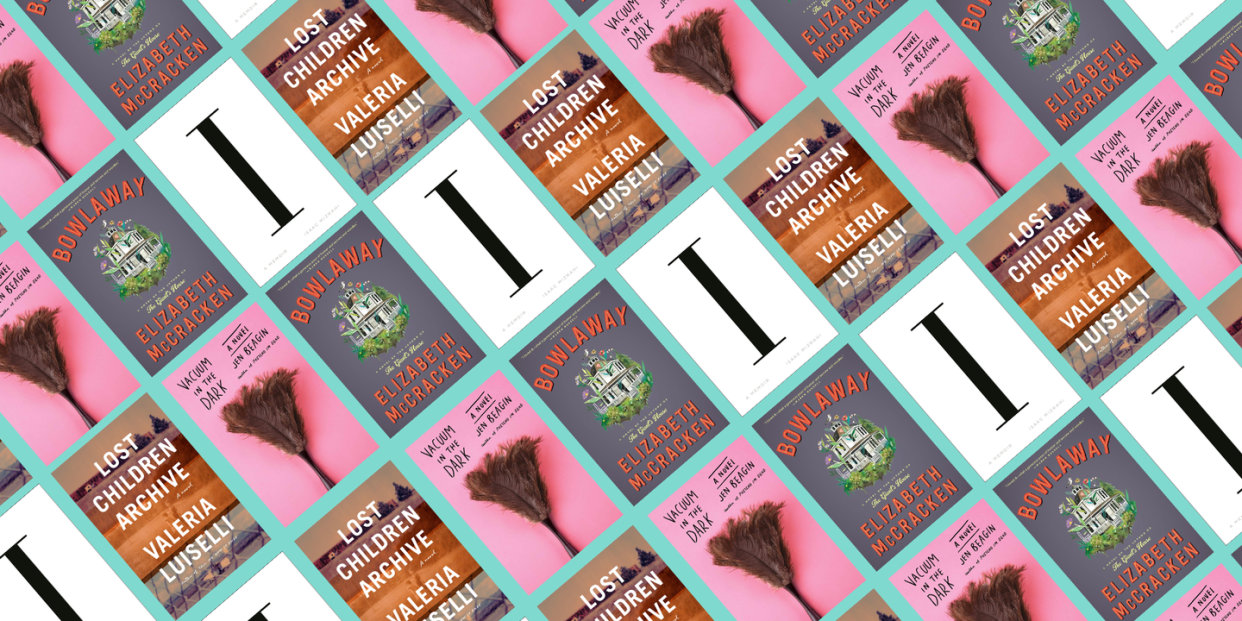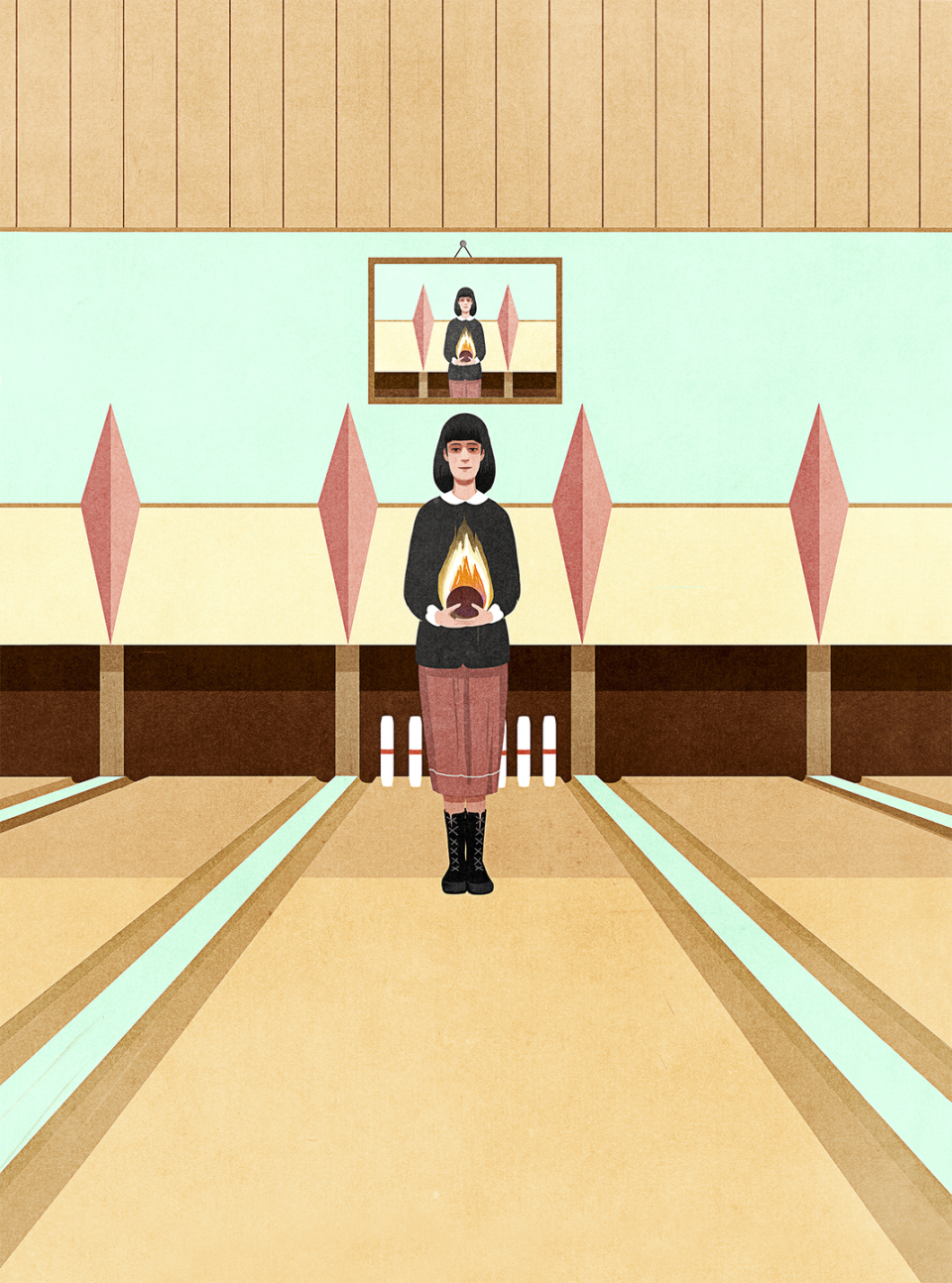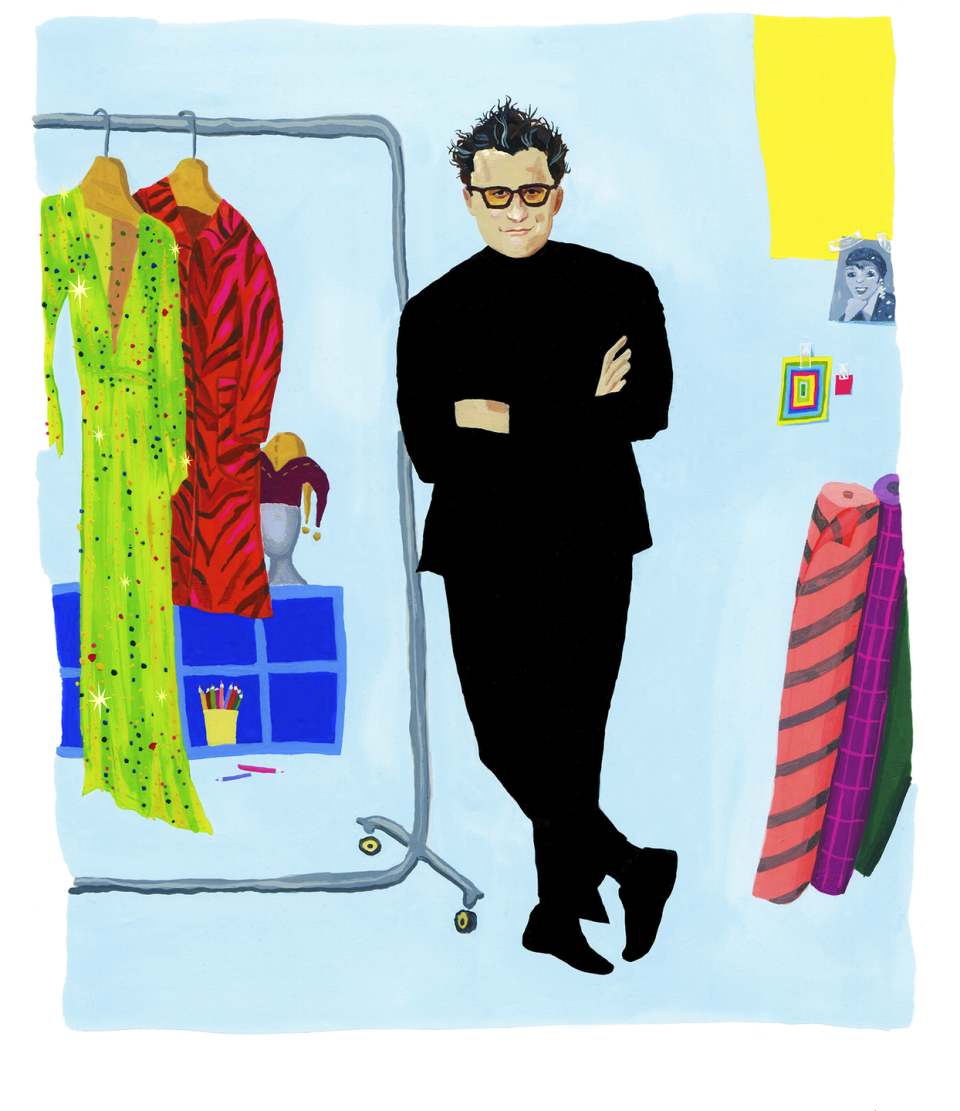These 4 Newly-Released Books Will Give You Plenty to Talk About at the Dinner Table

It's a stellar month for literature lovers. If you don't have a significant other to spend Valentine's Day with, or if you do but also desperately need some me time, these four newly-released February 2019 titles are the ones we fell head over heels for-and know you will too.
Elizabeth McCracken's latest is a raucous tale of eccentrics and oddballs, while Valeria Luiselli's astonishing new novel suggests we are all strangers in a strange land. Iconoclastic designer Isaac Mizrahi chronicles his quirky rise to fame and fulfillment. And Jen Beagin's second book centers on an impetuous cleaning lady whose imaginary friend is NPR's Terry Gross.
Bowlaway by Elizabeth McCracken

Every now and then, a novel reinvents the language of storytelling in dazzling ways: Think of George Saunders’s collage technique in Lincoln in the Bardo, or Helen Oyeyemi’s reimagining of Snow White in Boy, Snow, Bird. Now comes Elizabeth McCracken’s Bowlaway (Ecco), a comic marvel set at the start of the 20th century in which the master stylist uses the offbeat lilt of fairy tales to spin a quintessentially New England saga.
As the novel opens, a middle-aged Bertha Truitt is found in a cemetery in the fictional town of Salford, Massachusetts, disheveled and unconscious, cradling a bowling ball, a candlepin, and 15 pounds of gold. A Black doctor, Leviticus Sprague, rouses her, but she is unable or unwilling to answer questions about her past. Cutting a defiant figure, she eventually marries Sprague and founds Truitt’s Alleys (later renamed Bowlaway), which offers candlepin bowling, a sport Bertha claims (falsely) to have invented. She lures a clique of women to shed their corsets and toss a ball. With her husband, she builds a sprawling octagonal house and conceives a brilliant daughter.
Bertha’s idyll collapses when a bizarre accident triggers a series of tragedies that will ripple from generation to generation, but the novel never loses its buoyancy. With sentences that radiate vigor and joy, McCracken weaves in and out of the minds of her beguiling cast, probing a common history from myriad perspectives and braiding their fates together, from Bertha’s long-lost con-man son-“the bones at the back of his hand stood out in shadow like the ribs on a lady’s fan”-to the Depression-era boy who sneaks swigs of beer, its tang like “bread infused with gold, a flavor inseparable from the way it unlaced his muscles.”
Bertha’s spirit broods over all, including the hired girl whose anguish steers her back to Salford: “It was tempting to believe that if you made yourself small and light, beneath notice, you might be allowed to persist nearly anywhere. But meek women were tossed out and forgotten.... What women needed to do was take up space. Become unbudgeable.”
Bowlaway survives as outsiders join the Truitts and Spragues and decades fold into each other. All the while McCracken circles back to the mystery of Bertha-who was she; how was she? With allusions to suffrage marches and UFOs, McCracken’s narrative rolls a strike right through the heart of the American epic. -Hamilton Cain
Lost Children Archive by Valeria Luiselli
In Valeria Luiselli’s Lost Children Archive (Knopf), a couple who met producing an oral history of New York City take to the road with their young son and daughter to pursue their respective obsessions. He’s tracing the fate of the last free Apaches; she’s desperate to learn what’s happened to a pair of immigrant sisters who’ve gone missing somewhere along the U.S. southern border. As they make their way west, stopping at funky motels and cabins, the kids struggle to make sense of their parents’ growing alienation from each other. To gain their attention, the boy hatches a radical plan that drives them further apart.
Luiselli long ago proved she’s a master of formal experimentation: a fiction writer, yes, but with a reporter’s instincts. As she did in The Story of My Teeth, an absurdist novel she wrote in collaboration with laborers at a Mexico City juice factory, Luiselli confronts many big-picture questions in Lost Children Archive: What does it mean to be American? To what lengths should we go to bear witness? Will history ever stop repeating itself?
Luiselli’s nonlinear style and rotating viewpoints help draw parallels between our immigration crisis and historical atrocities, bringing large ideas about nationhood to a knife’s point. All the while, her language is so transporting, it stops you time and again: “We fell in love-completely, irrationally...and headfirst, like a rock might fall in love with a bird.”
Not since Lolita has a road trip so brilliantly captured the dark underbelly of the American dream, the gulf between its promise and reality. -Carmen Maria Machado
IM by Isaac Mizrahi

Back in the ’90s, when Isaac Mizrahi was already a fledgling celebrity, fashion insiders quibbled over whether he was a true designer or a dabbler who liked the limelight. By the end of his candid, well-wrought memoir, IM (Flatiron), Mizrahi puts the matter to rest, pronouncing he is “a performer, a writer,” but one “trapped in the body of a fashion designer.”
The only son of a Syrian Jewish children’s-wear manufacturer and a bookish, clotheshorse mother, Mizrahi was indeed “trapped,” for nine years, in a Brooklyn yeshiva wholly unsuited to his “effeminate,” artistic temperament. He repeatedly collapsed on the floor in screaming panic attacks and defaced his religious texts “with sketches of shoes and hairstyles.” Bullied and miserable, he retreated into his family’s garage and constructed a “fabulous, glittery” puppet theater complete with Rockette-like marionettes. His bedroom became a sanctuary where he cultivated pitch-perfect impersonations of Liza Minnelli, Dionne Warwick, and Barbra Streisand.
Salvation arrived in the form of Manhattan’s LaGuardia High School for the Performing Arts, where he dropped 75 pounds, came out as gay, and landed a bit part in Fame, wearing a jester costume he made himself. At 16, he tentatively launched a fashion line, and the pull of the industry became irresistible.
After studying at Parsons and toiling for Perry Ellis and Calvin Klein, Mizrahi gamely ventured out on his own. Life came full circle when his childhood idol Minnelli became a client and friend. In 1989, Chanel took notice and invested in his company, a doomed alliance that lost money and didn’t satisfy either side. Finally, in middle age, the lifelong insomniac and workaholic established a thriving business with QVC and found love with husband Arnold Germer.
Mizrahi leaves his readers at New York’s Café Carlyle, on opening night of his 2017 cabaret act, titled “Does This Song Make Me Look Fat?”-but not before scattering a few choice pearls of wisdom. “For all the speculation about who I am, what I do, this is the real answer. Just me and the audience and time at a standstill.” -Amy Fine Collins
Vacuum in the Dark by Jen Beagin
Vacuum in the Dark (Scribner), Jen Beagin’s second novel, opens with Mona, a young housecleaner in New Mexico, scrubbing excrement from a soap dish while conversing with an imaginary Terry Gross: “The air? Not so fresh today, Terr.” A follow-up to the riotous Pretend I’m Dead, this is what a sequel should be: darker, sexier, funnier. By turns nutty and forlorn, the novel is split into four semiepisodic sections linked by Mona’s intimacy woes. The mystery of the poop culprit frames an imprudent affair between Mona and her married employer, a tattooed brooder whose wife is blind.
Elsewhere, Mona agrees to model nude for a pair of Hungarian painters, an arrangement that exposes her insecurities over her own artistic ambitions as well as the cracks in the couple’s relationship. “We are all ghosts in each other’s stories,” Mona pontificates to Terry, yet in these pages, she is much more than a specter. Brash, deadpan, and achingly troubled, Mona emerges as that problematic friend you’re nonetheless always thrilled to see. -Michelle Hart
For more ways to live your best life plus all things Oprah, sign up for our newsletter!

